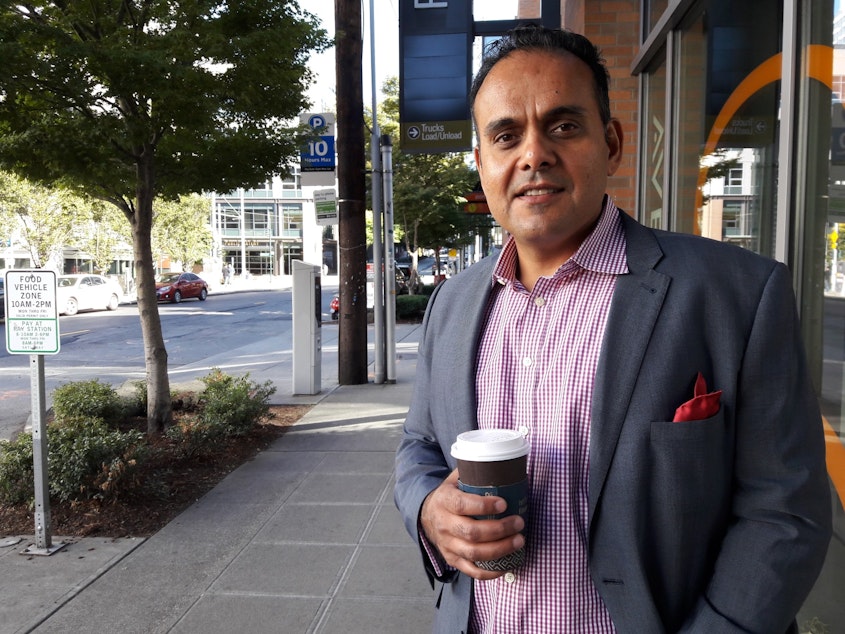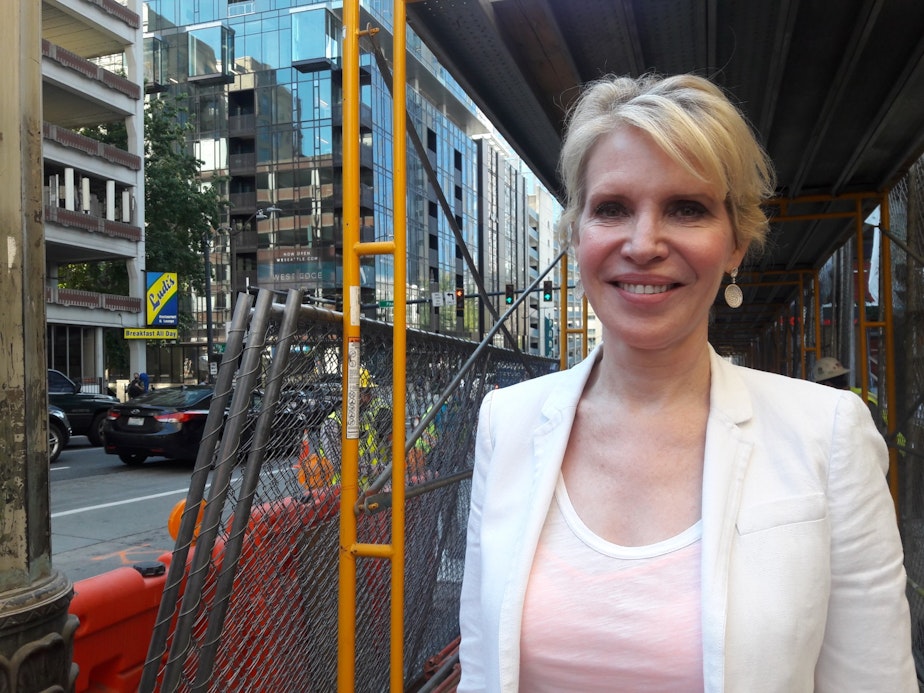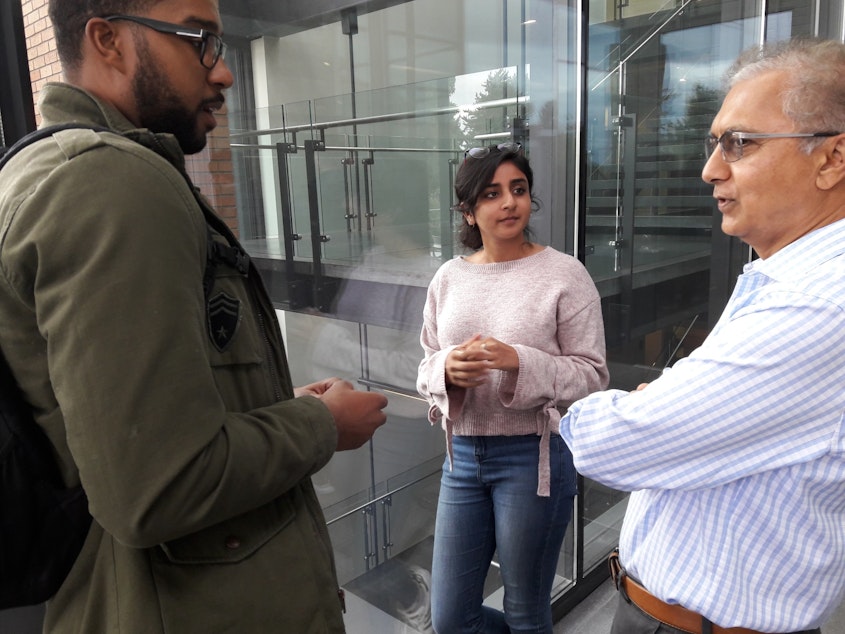Poaching in Seattle's tech industry creates 'virtuous cycle' of employees

Poaching workers is a big part of the tech economy. When Amazon opened in Seattle, it snapped up a lot of workers from Microsoft.
And today, lots of companies hire away from Amazon.
Sometimes, companies get bent out of shape about it. This week, the Puget Sound Business journal reported that a recruiter at Paul Allen's artificial intelligence institute threatened to sue someone at Facebook - over employee-snatching.
But other times, it’s just how things get done. Many workers in Seattle slide between tech jobs easily, taking advantage of perceived holes in non-compete agreements.
That kind of job mobility is one of the reasons why dozens of companies, from Best Buy to HBO, have opened up satellite offices in Amazon’s hometown of Seattle. They attract employees by offering perks like the tech jobs, such as a game room with an arcade-style basketball game.
“That’s not my high score,” said Sunjay Pandey apologetically, after firing off a few at my request in the Seattle offices of Capital One bank.
To be a bank today, you also need to be a tech company. Last year, Capital One opened an innovation lab just steps from Amazon's headquarters.
Pandey, a former Amazon product manager, runs it. “Yeah, if you looked at my LinkedIn profile, you’ll see that I worked at Amazon for multiple years at Alexa and AWS,” he said. (AWS is Amazon's cloud service).
But he said Capital One didn’t choose the South Lake Union neighborhood to poach employees from Amazon. “There’s no poaching going on for sure,” he said.
But still, he’s certainly not the only employee who lists Amazon as a former employer. Whether it’s intentional or not, Pandey acknowledges his office benefits from Amazon’s presence nearby.
“When you think about this area, and the kind of talent in this area, the top talent in the world — it’s here," Pandey said. "If you want the most highly trained and skilled people, you go where they are."
Capital One faces a different challenge than Amazon did when it scaled up here. Amazon was home-grown. Capital One is based in Virginia, and must convince potential employees that it’s committed to Seattle.
The company's doing what it can to fit in. The fourth floor conference rooms are named after Northwest bands.
“That’s been a real inspiration for us," Pandey said, pointing out the room names as we pass: Death Cab for Cutie, Blue Scholars, Macklemore, Heart.

Capital One might be borrowing local credibility from the region’s music scene, and borrowing tech expertise from the local labor pool. But satellite offices like that form an important part of a thriving tech ecosystem, according to angel investor Heather Redman.
“The word that they use in often in tech is agglomeration," she said. "Once you have a certain amount of one kind of talent, more talent wants to be there too, and then more companies come that want that talent. And it’s just sort of a virtuous cycle.”
Still, Redman said satellite offices like Capital One’s innovation lab can’t be depended on to grow Seattle’s economy in the way that home-grown companies can.
Suresh Kotha teaches business at the University of Washington. "Think of Amazon," he said. "Amazon started here. They had 25 employees in the first year. Now, they have 40,000 people in Seattle."

Kotha said that growth is why Seattle has become a leader in Cloud Technology. And it’s why Seattle is becoming a leader in artificial intelligence and machine learning.
But that also makes Seattle vulnerable, according to investor Redman. If Amazon moved that expertise out of state, satellite offices of other companies might follow it.
“You know, one of my hopes is that HQ2 will not be taking the Alexa team and the other teams in Amazon that work in AI and ML, because I want that talent to stay here, and I want us to increase our lead," Redman said.
And to really pull ahead, Redman says we need to grow the next Amazon.




